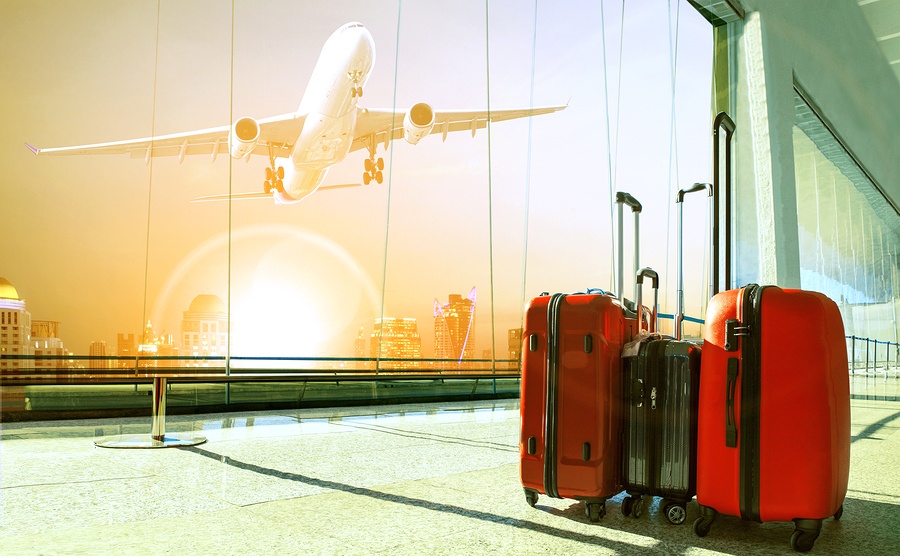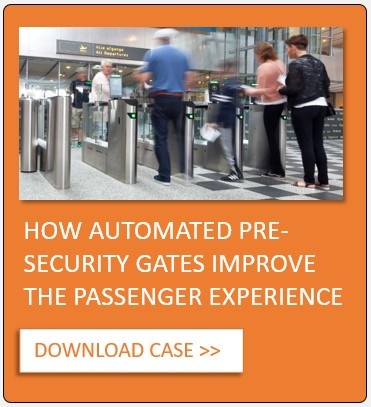Walking pace processing, personalised preferences and seamless travel authorisation are some of the features airline passengers can look forward to in the airports of the future.
The Airport Passenger Journey of the Future
According to NEXXT1, the vision is for air travellers to experience a "seamless, secure and efficient walking pace journey that is highly personalised throughout".
From arrival to boarding, here's a brief summary of how that vision could look for the passengers of tomorrow.
Biometric Capture
Advanced identity management uses biometrics to confirm a passenger's identity as they move through the airport.
On arrival, biometric capture verifies that a passenger is on site. This capture can occur at any of several entry points, such as the car park or terminal doors.
Biometrics are used to confirm identity and enable walking pace processing
Wherever it may be, passengers do not have to stop at a checkpoint to identify themselves - it happens while they are on the move.
Baggage Drop-Off

Built-in bag ID linked to the passenger's own ID means that bags can simply be dropped off. Robots may even be used to collect luggage from passengers as they get to the airport.
Baggage processing is handled using a single record created for each bag which follows it over the entire journey — including all transfer points and final destination — and which is connected to the passenger's travel profile.
Bags are cleared in advance by border control authorities using this digital record and travel profile.
Exit Border Control
Again biometrics are captured on the fly to verify a passenger's identity at outbound border control with the option for clearance or referral to secondary border inspection.
Departure Travel Communications

Passengers receive personalised departure travel notifications based on their location. These may include help with where to go in the airport, point-to-point walking time information, boarding procedures for just-in-time boarding, in-flight entertainment options, and retail offers.
Real-time notifications about departure disruption inform passengers about flight status changes, gate changes, changes to connecting flights, and redirected baggage.
Security Screening
The experience for the passenger is far more seamless with improved checkpoint design and end-to-end screening.
Using biometric capture as the passenger is walking, verifies identity and permits access to the screening area.
"The end-to-end security screening process will be seamless, secure, and fully optimised"
To prevent queuing, passengers simply continue walking though a scanner with no need to stop and adopt a special stance. Security staff are alerted if secondary screening is required.
Carry-on baggage is checked for concealed prohibited items.
Boarding
To enable walking pace boarding, passenger ID is once more confirmed using biometric capture with minimal need for staff assistance.
Using personalised notifications, the goal is to get passengers to board just in time, reducing stress and expanding the opportunity to use pre-flight airport services.
See the range of Gunnebo's Airport Security Solutions
1NEXXT is a collaboration between the International Air Transport Association and Airports Council International to map the use of travel technologies to create a new experience for airline passengers.
This is an update on a blogpost originally posted January 16th, 2018
Topics:
Airport Security

